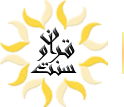Basics of Becoming a Muslim
Islam is an Arabic word and it connotes submission, surrender and obedience. As a religion, Islam stands for complete submission and obedience to Allah (God).
Islam, in fact, is an attributive title. Anyone who possesses this attribute, whatever race, community, country or group he or she belongs to, is a Muslim. According to the Qur’an (the Holy Book of the Muslims), among every people and in all ages there have been good and righteous people who possessed this attribute – and all of them were and are Muslims.
Islam is a universal and eternal religion. Its appeal is to the whole humanity. Any person who declares belief in La ilaha illallah Muhammad-ur-Rasulullah (there is no deity but Allah, and Muhammad is His Prophet) enters the fold of Islam and entitles him or herself to the same rights as those of other Muslims.
Prophet Muhammad (blessings of Allah and peace be upon him) has enjoined us to believe in five articles of faith:
1) Belief in one God Who has absolutely no associate with Him in His divinity;
2) Belief in God’s Angels;
3) Belief in God’s Books, and in the Holy Qur’an as His Last Book;
4) Belief in God’s Prophets, and in Muhammad (blessings of Allah and peace be upon him) as His Last and Final Messenger; and
5) Belief in life after death.
One who believes in these articles enters the fold of Islam and becomes a member of the Muslim community. But one does not become a complete Muslim by mere vocal profession alone. To become a complete Muslim one has to fully carry out in practice the instructions given by Prophet Muhammad (blessings of Allah and peace be upon him) as ordained by God.
These five articles form the foundation for the superstructure of Islam. Their gist is contained in the short sentence known as Kalimah-tayyibah (also called the Shahada). When you declare La ilaha illallah (their is no deity but Allah), you give up all false deities, and profess that you are a creature of the One God; and when you add to these words Muhammad-ur-Rasulullah (Muhammad is Allah’s Messenger) you confirm and admit the Prophethood of Muhammad (blessings of Allah and peace be upon him). With the admission of his Prophethood it becomes obligatory that you should believe in the divine nature and attributes of God, in His angels, in His Revealed Books and life after death, and earnestly follow that method of obeying God and worshipping Him which the Prophet Muhammad (blessings of Allah and peace be upon him) has asked us to follow.
Now let us see what code of conduct Muhammad (blessings of Allah and peace be upon him) has taught as ordained by God Almighty. The first and foremost things in this respect are the ‘Ibadah (or worships) – the primary duties which must be observed by each and every person professing to belong to the Muslim community. ‘Ibadah is an Arabic word derived from ‘Abd (a slave) and it means submission. The concept of ‘Ibadah is very wide. All your activities are ‘Ibadah if they are in accordance with the law of God and your ultimate objective is to seek the pleasure of God. A set of formal ‘Ibadah (worships) are thus the pillars on which the edifice of Islam rests:
1) Salah (prayers) – The most fundamental and the most important of these obligations. Salah are the prescribed daily prayers which consist in repeating and refreshing five times a day the belief in which you repose your faith.
2) Fasting – What prayers seek to do five times a day, fasting in the month of Ramadhan (the ninth month of the lunar year) does once a year. What is it that makes us voluntarily undergo hunger or thirst from dawn to dusk? It is nothing but faith in God and the fear of Him and the Day of Judgment. This consciousness of duty and spirit of patience that incessant fasting during a whole month helps us strengthen our faith.
3) Zakah – Its fundamental importance lies in the fact that it fosters in us the quality of sacrifice and rids us of selfishness and greed. Islam accepts within its fold only those who are ready to give away in God’s way some of their wealth willingly. Every Muslim whose finances are above a certain specified minimum must pay 2.5% of their cash balance annually to the deserving.
4) Hajj (pilgrimage) – Mecca today stands at the site of a house that the Prophet Abraham (God’s blessing be upon him) built for the worship of Allah. Allah rewarded him by calling it His own House and making it the center towards which all must face when saying prayers. He has also made it obligatory on those who can afford it to visit this place to perform the Hajj, at least once in a lifetime. The pilgrimage is, in a way, the biggest of ‘Ibadah. For unless a person really loves God he would never undertake such a long journey.
In the name of Allah (God), the Beneficent, the Merciful.
All Praise is due to Allah (God), Lord of the worlds, the Beneficient, the Merciful, Owner of the Day of Judgement.
Thee alone we worship and Thee alone we ask for help.
Show us the straight path, the path of those whom Thou hast favoured, not (the path of) those who earn Thine anger nor (of) those who go astray. (Amen)
The Holy Qur’an (The Opening Chapter, Al-Fatihah, Surah 1)




I am a Muslim n I want to know Qura’an fluently